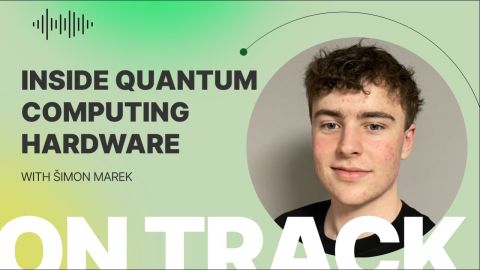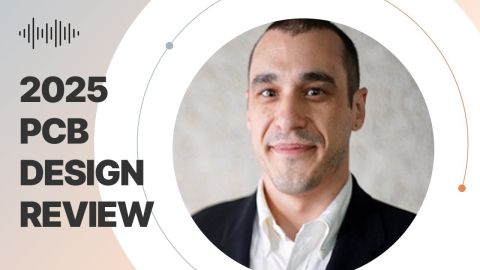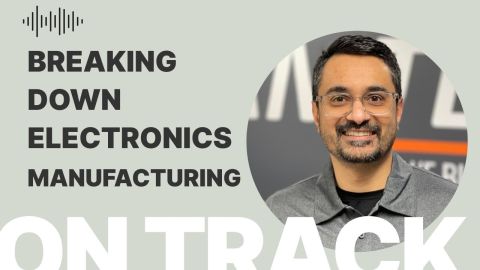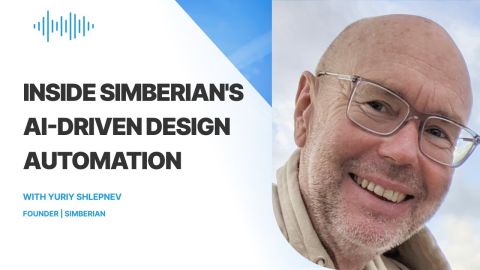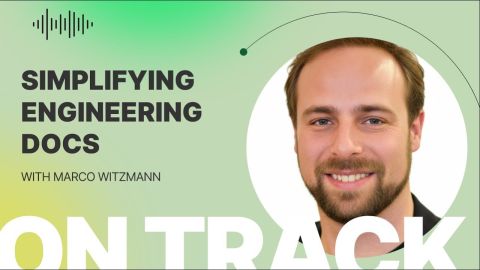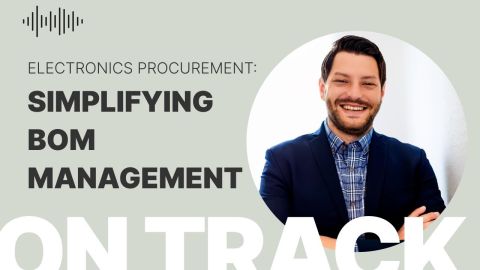Master the Basics of PCB Electronics Design and ECAD Software

Altium launches a new curriculum into the college and university space called Altium Education. In this episode, Rea Callender, Altium’s Vice President of Education, tells us what is in the curriculum, who it is for, and how it will help PCB designers and aspiring designers advance into their career.
Listen to the Podcast:
Download this episode (right click and save)
Watch the video:
Show Highlights:
- Altium recently launched Altium Education, which aims to educate inexperienced users about printed circuit board design and to teach the skills needed to create a printed circuit board, and send it off to manufacturing.
- Enrollment in Altium Education includes a Free Altium student license
- Altium is taking the lead in PCB Design Education
- Teaching the process of circuit board design
- Modular approach with 6 units that college professors can use to supplement their course
- Students can take the curriculum for free as a self paced learning tool
- Altium Education has received positive feedback from college professors prior to launch.
- There is currently no college level curriculum similar to Altium Education. It is a supplemental course not meant to displace current course requirements.
- Pcdandf survey reports that in 15 years, approximately 78% of the workforce to retire, which may lead to a talent shortage
- Altium Education will help attract talent to the field of electronics design
- It will equip the students with proper skills in PCB design
- It is designed for University and College professors and students, focused on engineering and design.
Links and Resources:
Register at Altium Education for Free
Yoshi Fukawa Episode - Coming Soon
Altium Free Student License
Full OnTrack Podcast Library
Altium Website
Transcript:
Zach Peterson:
Hello everybody and welcome to the Altium OnTrack podcast. I am Zach Peterson. I am your host. And today I am here with Rea Callender, VP of Education at Altium. Today, we have a very special announcement that I think a lot of folks in the audience are going to enjoy. So with that in mind, let's go ahead and get into it. Rea, thank you so much for joining us on relatively short notice.
Rea Callender:
Hey, Zach, I really appreciate you having me here. And yeah, we've got a really exciting announcement. We are launching a new curriculum into the college in university space called Altium Education. And the curriculum takes students who know nothing about printed circuit board design, being able to create a printed circuit board, and send it off to manufacturing. So it's really exciting, and you know for years, and many people know for years, we've been supporting college students by giving them a free license to Altium Designer, globally. We have multiple thousands of students with free licenses to Altium Designer. Now, we've got curriculum that goes along with it, so it's a much stronger package. So, we're really excited about it, and the curriculum points to an Altium Designer, uses Altium Designer as examples and teaches the student to use Altium Designer. So again, we feel that it's a much stronger package that we're looking forward to it being out there.
Zach Peterson:
Yeah, definitely. I think that's really great that's... Altium is trying to take the lead on designer education. And I think it's an important for a lot of folks to note that usually when these types of courses come out, people think that it's all just focusing on here's how to access this feature in the program. Here's what it does. But you know, the program that Altium has created, I think is going far beyond that, drawing upon all of the resources internally to create something that is just as much conceptual in teaching you the process of printed circuit board design, as it is about tool usage.
Rea Callender:
Right? I think that's really important because colleges globally will be able to use this and students will benefit from that approach. Again, teaching the student the design process and being able to create their own printed circuit board. We happen to use Altium Designer because that's our tool, but it could be... And of course we created this with the college professor in mind also, which is it's a modular approach. There's units. There's six different units. The college professor can grab a unit, and supplement the course they're currently teaching. Or a student can go into our curriculum and take it self-paced. So, I think we've addressed both audiences and for maximum value.
Zach Peterson:
Yeah. So, I know that previous to this, Altium launched upper education targeting high school students, and this is just a natural extension to that. But one thing I'm wondering is, you mentioned that this is all geared towards the college professor and giving them resources to be able to incorporate these important electronics design topics into their curricula. What type of feedback have you gotten initially on the front end before the full launch?
Rea Callender:
Yeah. We've been talking to college professors and showing them exactly what we have, and we've gotten an excellent response. And it's interesting that despite the fact that we know how important printed circuit boards are, despite the fact that we know that the talent pool is reducing, a lot of colleges don't offer courses on printed circuit board design. And one of the reasons is because it's very hard to find curriculum. And in all of our discussions with those professors, that really prompted us to create curriculum like Altium education to help them teach print circuit, board design, it's a supplemental course, so it's not meant to displace anything. So, yeah. Yeah. We're really excited about it.
Zach Peterson:
Yeah, that's great. And you brought up the workforce issue. I mean, there was just a recent survey in PCD&F. They noted that from their survey results that over the next 15 years, approximately 78% of the workforce that, I mean, that's mind boggling. 78% of the workforce is expecting to retire. I mean, talk about a job talent shortage and job surplus. It seems like a real opportunity for the next generation to get involved in something that is obviously a great career, but also really at the forefront of advanced stuff, advanced technologies. I know that a lot of the clients that my company has been working with, and a lot of the folks that I talk to, do you see people coming from software into hardware, because they want to develop something more advanced. Maybe they're working in robotics, maybe they're working in commercial space, or something like this. And they know that they now have to be hardware experts, and they don't even know where to start.
Rea Callender:
Mm-hmm (affirmative). Right.
Zach Peterson:
So, it's because of that talent shortage that they aren't able to get up and running quickly. And so this just really fills in the gap and helps. I think it's going to help students really jumpstart their way into these more advanced areas that typically would've been relegated to the senior PCB designer type of level. I mean, what do you think about that?
Rea Callender:
No, I think that's totally true. And of course our goal here with this is to attract talent to this field. To attract talent to the field, and also to equip students with the proper skills so that they can enter the workforce and be more valuable employees. And then of course at the end of the day, we really hope that this helps drive the next generation of technology and innovation. So that's one of our big goals, and we hope to see that happen.
Zach Peterson:
Yeah, definitely. Definitely. And as far as filling in the gaps, I think with education and curricular shortage, if you look at what's out there, I mean, you'll see a lot of like tool specific courses, right? So, you know the CAD vendors, they offer training courses and their tools, which is understandable, I mean all software vendors do it. So totally get that. But I agree with you. I think there's this big gap between the industry-level type of standards-based curricula. And then what happens with the traditional engineering curriculum, where it's all based on, like digital electronics, students learn a lot about logic gates. They learn like about op amps and circuit design, but then it's like, there's this whole big gap with board layout. And I think as the technology has gotten more advanced, all of the semiconductors that we use have gotten more advanced. Now, that's where really the rubber is hitting the road and people are having trouble actually laying out boards that are going to work properly.
In fact, we talked with [Yoshi Fujikawa 00:07:24] just recently on the podcast. He had mentioned that the biggest problems that people face are EMI, EMC, signal integrity, and power integrity. I mean, this is all bread and butter board layout stuff. And it seems like there's just this huge knowledge gap. And so I think it's great that Altium is really stepping up and taking a lead and trying to get students to really jump in and participate early before they get to the job and then realized, oh, no, I don't know how to lay out a board.
Rea Callender:
Right. Now, and we've talked to people at NASA as well, and they have people coming in that can't lay out a board, and they're so excited about this curriculum. So, I see this working at the college and university level. I see it working with students who just want to learn this. And then also at the corporate level. I mean, I think this is great curriculum for corporations, so.
Zach Peterson:
So, you brought up a couple of threads branching off from the current curriculum, because the current curriculum is meant to be like 101, 201 kind of level curriculum.
Rea Callender:
Yeah.
Zach Peterson:
Really the ground floor?
Rea Callender:
Yes. The ground floor... Teaching, taking students who know nothing about printed circuit boards to being able to create a printed circuit board, and-
Zach Peterson:
Sure, sure.
Rea Callender:
... yeah. That's, that.
Zach Peterson:
So, maybe they're not making the next Intel mother board, but they're jumping in, they're doing some Arduino shields or something like this.
Rea Callender:
Right, exactly. And we support people interested in electronics design at all levels. So it's high school, college and also professional. So, once a student goes through this particular course, we have other courses available for the professional. If you want to grow your skills on Altium Designer, we have several courses that are out there as well. So, we're covering the gamut really?
Zach Peterson:
Yeah, that's excellent. That's excellent. And I'm wondering now that we've got a high school curriculum, and now undergraduate lower level college curriculum, what's next on the roadmap? Is there going to be an upper level college curriculum? Is there going to be maybe a graduate level. Is there going to be a pre-professional level type of course. I mean, what do you see on the roadmap?
Rea Callender:
I think pre-professional, the next step is probably what we'll do. We'll expand on Altium Education. We'll get Altium Education out there, just like we did up further education. We launched upward education into high schools back in June of 2020. And since that time we've had about 8,000 students globally come through our program and we've been-
Zach Peterson:
8,000 students.
Rea Callender:
... 8,000 students from around the world, 50 plus countries. It's been a really exciting experience for us because we've dealt with, or been involved with robotics teams, and teachers really from around the world, and we've taken their input and made up further education stronger. And we're going to do the same thing with Altium Education. We'll take the input from the college professors that are using it. We've got University of Pennsylvania already involved, University of Massachusetts, the NASA on the corporate side. So, we'll take their input and make the program even stronger, and then take it to the next level. Yeah.
Zach Peterson:
That's great to hear. That's great to hear, and I'm sure if professors have some ideas, maybe they want to get involved, maybe they want to sample the curriculum before they incorporate it into their classes. What's the best way they can get ahold of these resources, and possibly even get ahold of you directly.
Rea Callender:
Yeah. I think the best thing, I'm open to getting emails directly from professors. So, an email directly, and also from our site, which is education.altium.com. There is a message possibility there as well, so they can get in touch with me directly because we'd love everybody's input. Yeah.
Zach Peterson:
That's great. That's great, yeah. So, if in case anyone missed it, education.altium.com is the place to go in. Learn about the curriculum, access these resources. In the show notes, we will go ahead and include those links, both to get to the site as well as to register if you're interested in registering. So who can register now? Is it just professors? Is it students? Is it everybody?
Rea Callender:
Well, everybody can register now? And the great thing is we have a sign on where you can go on as a student. You can register for the curriculum and the license at the same time. So then you're put into the curriculum and you get your free license to Altium Designer. Or if you already have an Altium Designer license, you can just go into the curriculum. So, either way and yeah, the program is out there, and we'd love to see it used.
Zach Peterson:
That's great. That's great. Well, I'm really happy to hear that this is launched in live and that the educational opportunities, or the training options are expanding, especially now that they are free and not necessarily just paid for. I know that's been a big, I don't want to say pain point, but I know that is something that is in demand. I questions periodically on LinkedIn and on the YouTube channel on YouTube videos, we get questions where can I learn PCB design for free? So this is great. You're addressing that need directly. And I know that a lot of the designers are going to be hungry for this.
Rea Callender:
That's wonderful. Yeah. We're really excited about it. We're really excited to get the program out there and feedback is always more than welcome. So we're delighted to be able to fill this gap.
Zach Peterson:
Absolutely, absolutely. Well Rae, thank you so much for joining us for this quick announcement. I would like everyone who is listening to check out the show notes, check out the links. You can go to education.altium.com. The courses that are there, I'm sure, are going to be improved and expanded over time since this is just an initial launch, but as time goes on, the options are just going to grow to help designers be the best designers that they can be.
Rea Callender:
That's great. Thank you, Zach. I really appreciate having me on.
Zach Peterson:
Absolutely. Absolutely. And to everyone out their listening, check out the show notes, make sure to subscribe, like this video, and of course, make sure you stay on track. Don't stop learning, and we will see you next time. Thanks, everybody.

